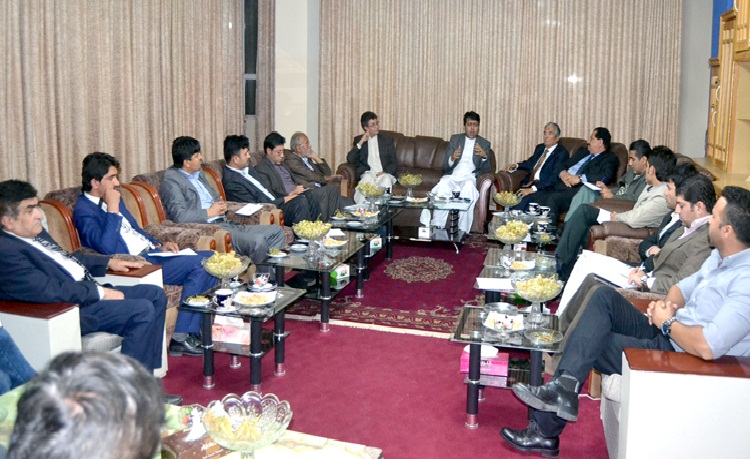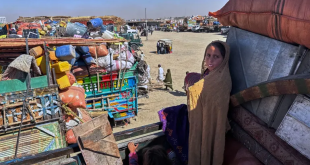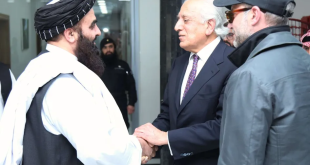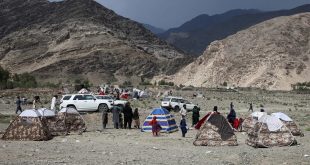|Unfortunately governance has become limited to ethnic-affiliations| Hopes were being popped beyond what the government can deliver, which created a huge gulf between the public and the government|
AT-KABUL: Rana Think Tank in its monthly session discussed legitimacy of the National Unity Government (NUG) and future challenges, where the analysts termed establishment of the current government against the Constitution and a product of the US interference into the country’s affairs.
Defining the current government according to laws of the land and the Constitution, the jurists and political affairs analysts said the government has no legal ground to stand on because public mandate was violated. They said that most of the challenges were created by the NUG as the leaders made numerous promises but failed to fulfill.
Defining the legitimacy, Chief of the Independent Electoral Complaint Commission (IECC) Abdul Satar Saadat said that a government is legitimate if it is acceptable to the nation and had the survival capacity.
“Legitimacy of the government is of utmost important in democracy. At national level legitimacy means that the government shall be established according to the Constitution and laws. It shall not violate any law. For this purpose people come out on the polling day and cast votes. National and international observers monitor the process,” he explained.
He furthered that the election law should be respected by the candidates and the honesty of the candidates should be above the board, the rivals should respect the public decision and the results should be acceptable to the people.
“What we observed in the last year’s presidential election has actually made the government controversial. The candidates were alleging each other of rigging before the result was announced. Public mandate was not respected. International interference was significant,” he recalled.
Saadat went on to say that for survival of any government it is necessary to make sure the government is complete, had not shortfalls and not violating the Constitution. He said that promises made by the candidates during the campaigns should be met because it is vital for survival of the government. He also stressed on implementation of the laws.
Speaking about importance of the legitimacy, the IECC’s chief said that a powerful government was necessary to run the state machinery. “If the government was acceptable to public and was according to the Constitution then it will have the capacity to survive. It is a basic and major difference between the dictatorial and democratic governments. Governments in North Korea and Syria are not democratic. They are surviving through use of brutal force. A dictator cannot sleep well because he knows the threats are immense while a democratic leader is never afraid and treat public as friends,” he underlined.
Talking about the presidential polls in 2014 and challenges, he said that international interference was immense; political environment was undemocratic as rivals were alleging each other of rigging; investigation by the international team about poll rigging was not allowed to be completed; and the candidates did not listen to public voices but formed a government that was not stated anywhere in the Constitution.
“As the two leaders had win-win situation and made several promises in the campaigns, therefore, pressure on the current government is crippling because public is disappointed. Even the US presidents cannot fulfill all promises that they made. However, people in developing countries are immature politically and take promises of the candidates too serious. This threatens the government, especially that which is not well-established,” Saadat pointed out, adding that now people say that if Karzai was in power the issues would not have been so many.
Rigging was done by teams of both presidential candidates; 560,460 fake votes were cast in favor of Ghani and over 200,000 in favor of Abdullah Abdullah, which gave birth to an impending crisis which was defused by foreign intervention, says Saadat.
In order to overcome the outstanding challenges the NUG had to practice real unity and the two leaders should avoid pursuing problems that could be a risk in future. As the government failed to fulfill the commitments, thus, it is required of the NUG to address the public concerns and garner support for the system, he suggested.
When the analysts were asked about promises of the leaders that have not been met, they said that President Ashraf Ghani said in his election campaign to create three million jobs for young people.
Ghani will be a good economist but this promise cannot be fulfilled because it requires $80 billion to create three million jobs. Neither the Afghan government has the required money nor the international community is ready to provide it, said the analysts.
They said that the president in his recent visit to Kunduz said that he would give metro service to the city but people said they want improved security. The political affairs experts said that trust of public over the government has been all times low that’s why they asked the president to improve law and order situation instead of making promises that could not be fulfilled given the current security situation and performance of the government.
Former Afghan Ambassador to Indonesia, Ghulam Sakhi Ghairat, said that situation in Afghanistan provides much for learning. “We must learn how to overcome the challenges and move towards progress,” he said.
The ex-ambassador said the international community is abandoning Afghanistan as the then Soviet Union did.
He said the Constitution has been violated and a new form of government was carved out of nothing. Local production is not supported to create employment opportunities. The government failed since its establishment, he added.
Danish Bakhtyari, a security affairs expert, said that in Afghanistan most of the governments bring achievements of the predecessors to zero and take start from there which prolongs the process of development.
Ahmadullah Naveed of the Regional Studies Center of Afghanistan said that the governments did not proceed in balance based on culture, demands and ideology of public, thus, resulting into trust deficit between the government and public.
 Afghanistan Times Latest News and Analysis from Afghanistan and the Region
Afghanistan Times Latest News and Analysis from Afghanistan and the Region




